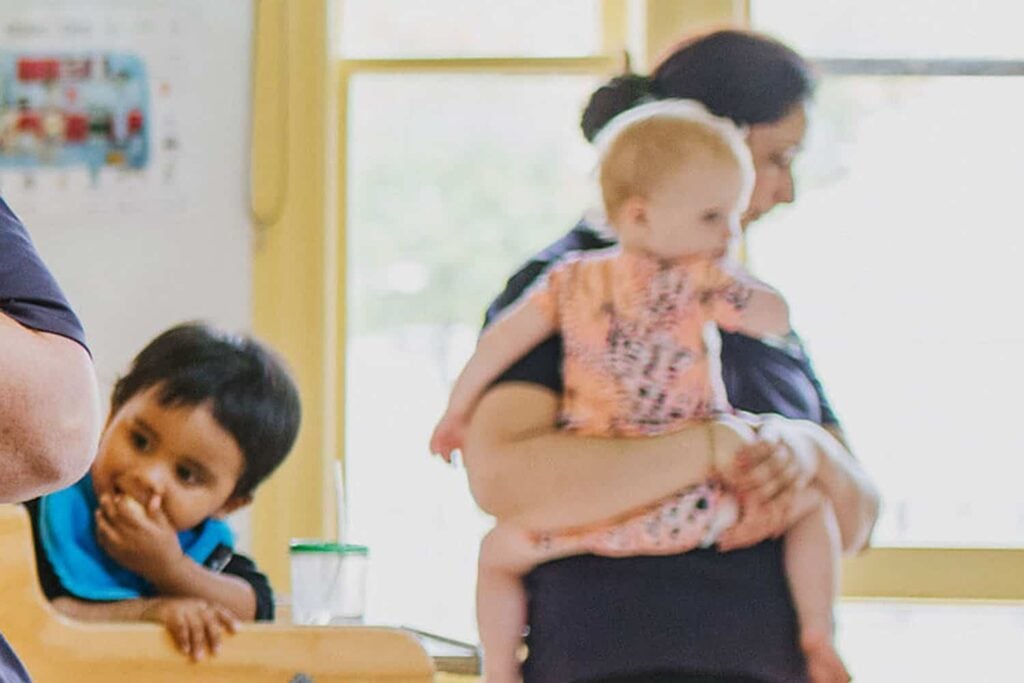The handbrake is finally going to go on the establishment of new centres and home-based networks from Feb 1, 2023.
Anyone wanting to start an early childhood service will need to apply for pre-approval to apply for a licence – a new 2-stage licensing process.
This will not improve the quality of the ECE service stock but it should reduce competition so we will see an end of fees discounts being offered to parents and services struggling to maintain full rolls. Fund management companies with money invested in early childhood service properties view Network Management as providing greater security of investment and improvement of portfolio value.
The Ministry of Education has a dedicated webpage that sets out the requirements and describes how it sees its approach – see this webpage.
Two online discussion sessions will be provided by the Ministry for anyone who wants to ask questions or learn more. Event details and registration is available via Eventbrite.
A separate session for those the Ministry knows to be planning to apply to it for a licence is being organised. Invitations for that will be sent directly. Contact: [email protected]
Establishing network management and implementing the two-stage licensing process will cost the taxpayer an estimated $13 million.
The ECE Market
Over the past 5 years the growth rate in the number of new commercial and for-profit centres has outstripped all other service types.
Table 1. The number and type of new services and existing services closed over the last 5 years (2017 – 2021).
| Number new | Number closed | Difference | |
| Private and commercial teacher-led centres | 435 | 119 | 316 |
| Community-based teacher-led centres | 75 | 83 | -8 |
| Home-based | 150 | 222 | -72 |
| Playcentre | 2 | 22 | -20 |
| Te Kōhanga Reo | 13 | 27 | -14 |
| Casual centres | 4 | 2 | 2 |
| Hospital-based | 2 | 1 | 1 |
More community-based teacher-led centres closed than were opened. Double the number of Te Kōhanga Reo closed than were opened. Only two new Playcentres were established in the past five years while 22 Playcentres closed.
Network management was delayed for two years following the passing of the Education and Training Act 2020 to give service providers plenty of notice and the Ministry of Education time to sort out the processes and prepare forms and guidance. However, business group Early Childhood Council (ECC) submitted to Parliament’s Education and Workforce Select Committee (36 minutes into the video) that the commencement date of 1 August 2022 was not kind to its members – business investors Stephen Piper (Co-Kids) and Rrahul Dosshi (Rainbow Group of Companies) building new centres that they didn’t think would meet the minimum requirements of network approval. It was consequently decided to further delay implementation until 1 February 2023.
How will network management affect the market?
Meeting one or more of the Ministry of Education’s stated priorities for new services, such as being a Pacific bilingual or immersion service, will not be a requirement for a service provider to gain approval. A service provider can still be granted approval regardless of any of the Ministry of Education stated priorities if the proposed service is in an area of under-provision.
Anyone that buys a new or existing licensed service is not required to go through network management. For example, a private operator backed by investors in property management might purchase a community preschool and change the service purpose, philosophy, hours, and provide for a different clientele. But existing services that need to shift to a new building must go through pre-application at which point they may be declined or crowded out of the market by other applicants who seize on the opening in the market.
There are other ways to get around network management because conditions placed on the approval of an applicant’s application do not automatically carry through once the service is licensed and running. For example, a service provider that gets approval to establish a new 20-place centre could later request to increase the number of licensed spaces and not go through network management again. A service once licensed can still be sold and the intentions of the owner approved under network management, for example, to provide low-cost childcare and accept casual bookings, may not continue through to the next owner who then introduces set hours for attendance of a minimum of 30 hours a week and charges high fees.
Te Kōhanga Reo National Trust asked to be exempted from the pre-licence application process and its request was granted. All full Māori language immersion services will be exempted too. Other valuable service types are not exempted.
- Hospital-based ECE services.
- Playcentres.
- Services provided by employers in workplaces and in government state sector organisations such as universities.
An applicant who is the subject of a final assessment by the Ministry of Education that reflects adversely on the application for approval to apply for a licence has the right to appeal against a negative assessment to the District Court. Only commercial providers of ECE services will likely pursue an appeal due to costs and time, which discriminates against small service providers and parents wishing to set up a service themselves in their community.
Existing services will not be notified of applications to establish new services in their area and there is no provision for existing services to raise concerns or object. Furthermore, there is no provision in the Education and Training Act 2020 for an appeal to be made against a Ministerial policy decision to pre-approve a new service. The Minister’s decision is final.
Community-based centres are at risk of closure if they need to relocate (e.g., if in a rented community hall or school buildings that are being re-purposed) or when in an older building that needs to be replaced because they are required to apply for pre-approval as a new service and may be crowded out by other applicant(s).
It will be harder, if not impossible, for a community group or a group of parents to set up a new service for two reasons. First, they must be able to show upfront that they have the money available or a plan to have the money (e.g., a bank is prepared to provide a loan) to meet the cost of establishing a service instead of calling on community spirit and fund-raising as they go. Second someone or an entity with no prior experience of establishing and running an early childhood service may find it hard to prove that they have the experience needed to open a new service, whereas a known service provider will automatically tick the experience box. Additionally, service providers with a positive licensing history or who are already a large provider of services will have this count in their favour, whereas an applicant for network management approval who is not a service provider will not yet have established a licensing history.
What is the public not being told?
The Ministry of Education is only required to consider the previous licensing history of a service provider that involves previous licence suspensions and cancellations. It will matter little or not at all that a service provider has previously or currently shown a disregard of minimum licensing standards until they get caught (as reflected in parent complaints, SELO funded assistance, written notes and provisional licences) and has operated one or more services that does not have high standards of quality as reflected in all ECE qualified teachers and low staff turnover.
Should a service provider hold multiple licences, then one or a few licence cancellations and suspensions for child abuse under their watch or other serious breaches of the regulations can still see the service provider being approved to open a new service. According to the Ministry of Education “licensing history is only one of the criteria that will be taken into consideration when determining if a licence will be granted and there will be no absolute or automatic declining of an application if a service has a proportionally small number of their licences impacted.”
Applicants will be given up to three years to establish a new service, with provision for this to be extended a further two years (total of 5 years). Though early documents by the Ministry show it considered as much as even two-years would be unnecessarily long for some network approvals as shorter timeframes may lead to faster establishment of services where these are needed in communities. Issues with a period of more than two years include applicants delaying applying for licensing when it is beneficial for the applicant to take longer to do so. Network approvals can ‘crowd out’ other potential applicants as it is most unlikely that another pre-application approval would be granted at the same time in the same location for a similar service.
Would you like to receive ECE news and updates?
Add your email address to the newsletter mailing list by clicking here to go to the newsletter sign-up box.









